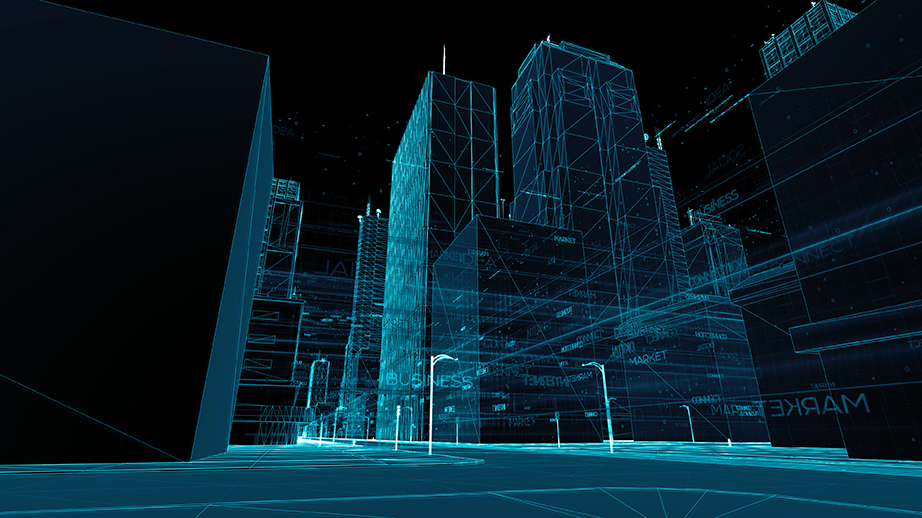
The future of the retail industry revolves around technology, and that doesn’t just mean a shift to e-commerce. Proptech real estate companies are transforming the brick-and-mortar shopping experience and how landlords run their shopping centers.
Investors are pouring funds into new retail formats, in-store technology, supply chain solutions, and much more. Combined, retail tech funding hit $109 billion globally in 2021, more than double 2020’s investment total, according to CB Insights.
Read on to discover how proptech companies will impact the retail real estate industry in the year ahead.
A real estate investor has an abundance of data available today to help identify the right tenants for an investment property. After all, not all retailers are the right fit for a specific property. You want to bring in brands with strong growth prospects that complement other retailers in your shopping center.
That’s where data comes in. With a sophisticated data service, a property manager can see detailed information on prospective tenants such as:
Data has many more uses than identifying prospective tenants. Just as workplace designers use utilization and occupancy data to determine the optimal office space design, you can use new layers of data to improve the shopping experience.
Retailers and property owners are using smartphone and foot traffic data to inform marketing tactics and reimagine store design. Using data gleaned from smartphones, you can even make the physical space more interactive and deliver targeted offers and assistance directly to individual customers.
In-store technology also delivers property management benefits. Property managers can determine the busiest shopping times with crowd-tracking cameras. Armed with that information, you can ensure proper staffing levels during peak hours — or brainstorm new ways to draw in customers during slow periods.
Data also has the power to integrate the online and in-person experience. Brands can use location data to identify which customers visited their stores and then target them with digital campaigns.
Proptech real estate tools are injecting new efficiency into the job of a property manager. With tools that automate lease administration, rent collection, contracts, and other daily tasks, you can improve productivity and better service your retail tenants.
The pandemic accelerated the digitization of the commercial real estate industry — retail included. With in-person interactions restricted, many real estate investors, brokers, and tenants became much more comfortable exchanging documents online, conducting virtual tours, and moving money electronically.
Software companies responded to this trend with new solutions that are here to stay. For example, you can automate your marketing efforts with a customer relationship management (CRM) system. With the right CRM, you can send personalized texts, emails, and social media messages to prospective tenants—and track the responses.
By streamlining administrative tasks, you’ll free up time to focus on strategies that improve the profitability and attractiveness of your retail property.
COVID-19 brought a heightened emphasis on the cleanliness of public spaces. Consumers ranked frequent cleaning and sanitizing as the top measure that would make them more comfortable with visiting physical spaces, according to a survey conducted by the International Council of Shopping Centers.
With the pandemic fresh on consumers’ minds, the focus on cleanliness is unlikely to abate soon. Modern cleaning technology solutions can play a key role in both improving the efficiency of cleaning processes and making consumers feel comfortable.
For example, touchless entry, elevators, and payments ease customer comfort and reduce the number of surfaces that require frequent sanitation. Cleaning robots can supplement your janitorial team by spotting and cleaning up spills.
Meanwhile, air quality sensors can detect viruses and pollutants in the air. This data gives property managers insight into areas that may need improved filtration or ventilation.
In recent years, proptech companies have introduced many new technologies aimed at reducing the environmental impact of the built environment.
These innovations will be increasingly critical for attracting retail tenants with ambitious sustainability goals. For retailers, the physical store is a powerful manifestation of its commitment to reducing its carbon footprint.
To attract sustainability-minded retailers, property managers must step up their efforts to make shopping centers more energy efficient. That’s why many retail property owners are now transitioning to smarter building management solutions enabled by the Internet of Things (IoT).
IoT-based smart building solutions typically enable energy efficiency improvements in power; lighting; and heating, ventilation, and air conditioning (HVAC) systems. Sensors and other monitoring technology provide granular, real-time data on building performance.
Property managers can use this data to do more than improve efficiency at the building level. They can also benchmark properties within a portfolio and identify opportunities for improvement.
You can implement a smart building system as a stand-alone project or as part of a comprehensive sustainability plan. For example, many retail property owners are adding electric vehicle (EV) charging stations, exploring sustainable landscaping, and implementing green cleaning programs.
Staying ahead of the latest technology trends will be critical for shopping center owners in the digital age. Are you considering new proptech real estate solutions in 2022?
Schedule a demo to learn how Retailsphere can help you better leverage data and enhance deal management.